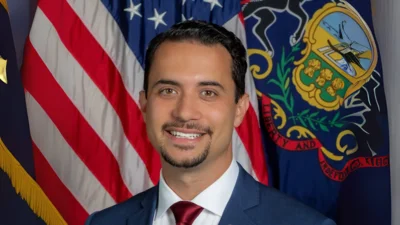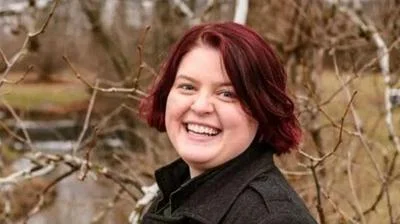The publication is reproduced in full below:
INTRODUCTION OF THE COVID-19 MEMORIAL QUILT ACT OF 2021
______
HON. ANDRE CARSON
of indiana
in the house of representatives
Friday, May 7, 2021
Mr. CARSON. Madam Speaker, I am pleased to reintroduce the COVID-19 Memorial Quilt Act of 2021 to again honor all the victims of this pandemic with a national memorial quilt.
The horrors of the COVID-19 pandemic have touched every corner of our country, wreaking unprecedented devastation on Americans' lives. As I reintroduce this legislation today, COVID-19 has infected at least 32 million Americans. Tragically, this disease has quickly robbed our country of at least 578,000 of our fellow citizens. We need to remember that these numbers are not just statistics: they are people. They are our moms, dads, children, grandparents, neighbors, teachers, religious leaders and fellow Americans who have been taken from us due to this pandemic.
Moreover, these numbers do not capture the depth of this disease's devastation. While our television screens are often filled with images of empty streets and packed hospitals, we often don't see the private isolation and loneliness of the individual struggles against COVID-19. In order to slow the spread of this disease, our hospitals, nursing homes, funeral homes, and businesses have had to impose strict social distancing and protective measures. While necessary for our public health, these restrictions come at a great human cost and deepen the private pain caused by this disease.
For the thousands of brave patients fighting COVID-19, including the hospitalized patients, nursing home residents, and individuals at home in quarantine, the struggle against COVID-19 is a lonely, scary, and isolating fight. In hospitals and nursing homes, often a patient's only human contact is a health care worker in full personal protective equipment (PPE). Family, friends, and loved ones can't be there to provide comfort, to hold their hands, or to pray with them in this terrifying time. At best, loving words and support might be shared over the telephone or video call. At worst, there is only an isolating silence where a loved one should be. These scars need to be acknowledged and hopefully healed.
The death toll from COVID-19 is even more wrenching. At least 112,000 Americans--whether in the hospital, the nursing home, or at home--have met the end of their lives without the comfort of their family, friends, or loved ones. Yesterday, more than 700 Americans died from this disease, and many were forced to close their eyes without the support of their loved ones nearby.
In my home state of Indiana, we have lost at least 12,966 Hoosiers to COVID-19 at nursing homes. We also know that African Americans are dying at disproportionate rates from COVID-19. African Americans in Indiana. Institutional racism, compounded by environmental and economic injustices, have made COVID-19 particularly devastating for African Americans. My heart grieves for my fellow Americans who took their last breath, because of this terrible disease, without the loving comfort and support they deserved.
For the family, friends, and loved ones of those who died from COVID-
19, the isolation and loneliness brought by this disease only grows after their loved one's passing. Social distancing and the isolating fear of this disease prevent us from adequately honoring and memorializing the many victims of COVID-19. Large memorial services are not possible. Family gatherings to celebrate lost loved ones are curtailed, with supportive hugs replaced by six feet of distance and protective masks. Private funeral services--if not cancelled or postponed altogether--have often had to take place with only 10 people or less.
In addition to its sickness, death, and disruption, COVID-19 has robbed us of traditional ways of honoring our lost loved ones. Holding smaller funerals or forgoing them entirely because of social distancing measures has denied us the opportunity to fully celebrate the lives of the deceased. Our ability to publicly grieve together, and to adequately honor and celebrate the lost has been largely denied due to this isolating and frightening disease.
Many Americans will also remember another isolating and frightening disease: the AIDS epidemic. Ryan White, a brave and remarkable Hoosier, faced isolation and many frightening obstacles because of his AIDS diagnosis. However, Ryan's courage, bravery, and advocacy for AIDS research galvanized many in support of AIDS treatment, research and recognition of this disease's horrific impact. Since no official commemoration existed, concerned Americans decided to celebrate and honor the lives of those who died from AIDS--often isolated and alone--
by creating a memorial quilt. As a result, in 1987, the NAMES Project AIDS Memorial Quilt was displayed and stretched the length of the National Mall. This remarkable quilt allowed us to honor and celebrate the lives of those tragically lost to a frightening disease, which at that time, had no cure, vaccine or effective treatment. More than 105,000 individual lives are commemorated through this quilt's 50,000 individual panels that contain photographs, correspondence, and news clippings to remember those who died from AIDS. In these panels, the memory of the victims were able to live on in public view.
Inspired by the brave advocacy and powerful legacy of the NAMES Project AIDS Memorial Quilt, I am proud to introduce the COVID-19 Memorial Quilt Act of 2021. This legislation honors and celebrates the lives of those we have lost to the COVID-19 pandemic through the creation of a memorial quilt. Like the AIDS quilt, creating a memorial quilt to remember the lives lost due to COVID-19 will allow Americans to publicly grieve our lost loved ones, but also commemorate their lives in permanent, visible, and dignified way.
The COVID-19 Memorial Quilt Act of 2021 authorizes the design, creation, and display of a memorial quilt and other commemorative programming and exhibits to honor the victims of the COVID-19 pandemic. My legislation does this by creating a Congressional Advisory Panel which will submit plans to the Smithsonian Institution and the American Folklife Center at the Library of Congress for how the quilt should be developed and displayed. Once complete, this memorial quilt will be displayed on the United States Capitol Grounds with a subsequent display on the National Mall and other locations, continuing the legacy of the AIDS quilt. This legislation also supports the powerful creativity of artists around the country by providing them with grants from the National Endowment of the Arts (NEA) to help design and prepare panels for the memorial quilt.
All Americans have been affected by COVID-19. All have felt the disruption wrought by this pandemic to our families, our workplaces, our businesses, our places of worship, and our social lives. But that is nothing compared to the Americans who have not only faced disruptions, but also the wrenching loss of loved ones from this disease. Because of social distancing and protective restrictions, we have been denied the ability to adequately honor, commemorate, and publicly celebrate those we have lost. And unfortunately, as more Americans continue to die in isolation from this disease, this deficit in our collective grief will only grow. As a result, my legislation builds on the powerful legacy of the NAMES Project AIDS Memorial Quilt and will help our country to collectively grieve and appropriately honor the victims of COVID-19.
Madam Speaker, I hope my colleagues will join us in supporting the COVID-19 Memorial Quilt Act of 2021, and I urge the House to support this legislation.
____________________
SOURCE: Congressional Record Vol. 167, No. 79
The Congressional Record is a unique source of public documentation. It started in 1873, documenting nearly all the major and minor policies being discussed and debated.
House Representatives' salaries are historically higher than the median US income.





 Alerts Sign-up
Alerts Sign-up